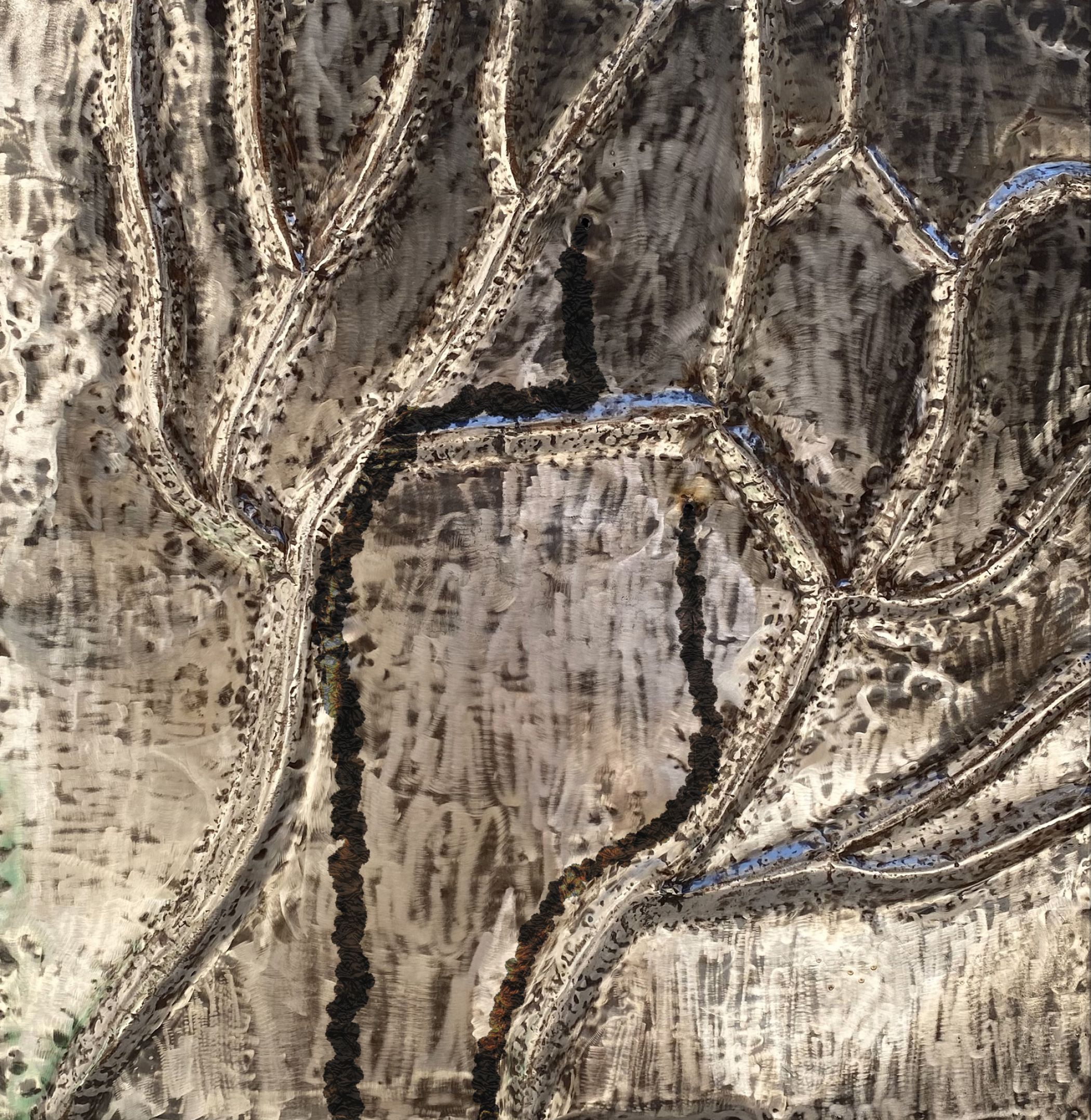Oil. The world’s great advances and failures of the last two centuries are concentrated in this viscous, shimmering, smelly substance. Oil has been one of the main accelerators of industrialization, capitalism, and climate change; in short, it is one of the main factors of the Anthropocene, the age of human impact on the earth. Oil has been an accelerator of human culture and modernization, of colonialism and extractivism, and is the cause of numerous global political upheavals, especially in the twentieth century. Oil continues to be a driving force behind war, murder, and irreversible damage to ecosystems across the planet. And it encourages migration, whether the migration of labor to oil-rich regions or displacement due to environmental pollution and violent disputes over control of resources.
Oil has deeply affected the people from whose lands and with whose hands it has been extracted. It has affected people’s lives and bodies, their histories, their movements. In collaboration with our guest editor, anthropologist Shahram Khosravi, mohit.art NOTES #15 looks at oil “from below.” This issue explores unfulfilled promises, remembers lost images and untold histories, finds the resistance of the most vulnerable at the place where body and oil meet, and tests the reversal of exploitative mechanisms.
In his introductory text, “The Oil: A View from Below,” Khosravi asks for new modes of thinking and a radical encounter with oil in order to understand what it has done to us. Sara Abbasnejad’s contribution, “The (Un)seen: Episode One: I’ve Left My Bones on the Shore,” is an attempt to connect with her ancestors. Belonging to the Arab Indigenous people of southwestern Iran, Abbasnejad draws on aspects of her heritage to show life at the margin of foreign, and domestic, coloniality. Roya Khoshnevis, a Tehran-based scholar, and Hossein M Roozaneh, a visual artist in Mashhad in northeastern Iran, present a feminist intervention in the relation between petroleum, patriarchy, and state violence in their collaborative piece “Hair and Petroleum.” Rouzbeh Akhbari, a visual storyteller who has been working along the southern borders of Iran, has extracted hundreds of documents from the British National Archives in London to share with others who are interested in the history of oil in the borderland between Iran and Iraq. What he attempts with his contribution, “Revisiting Oil Geographies: Archival Challenges and Collaborative Possibilities,” is a kind of “counter-extraction”: the extraction of documents from a colonial power that had extracted wealth from the whole of the Southwest Asian region.
With this issue, we bring to a close the editorial framework explored in 2024: reconciliation, migration, education. We are looking forward to exciting new NOTES issues this year, which we will expand to include other local contexts in Southwest Asia.
As always, please make sure to check out our newly updated CALENDAR, with exhibitions and events in Iran, Lebanon, UAE, Jordan, Europe, US, and around the world.
Managing Editor: Helia Darabi
Hannah Jacobi, Shahram Khosravi, “Editorial” in mohit.art NOTES #15 (February/March 2025); published on www.mohit.art, January 31, 2025.
Header image: Hossein M.Roozaneh, Untitled (detail), from the series Woman in the Realm of Petroleum Authoritarianism, 2024. Iron, crude oil, electric Pump, 140 × 140 cm. Courtesy of the artist.

